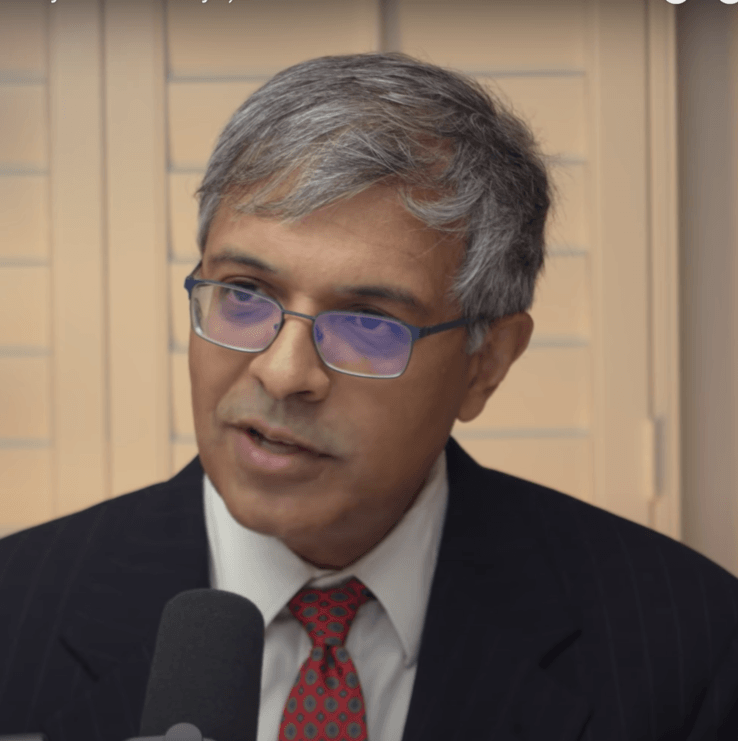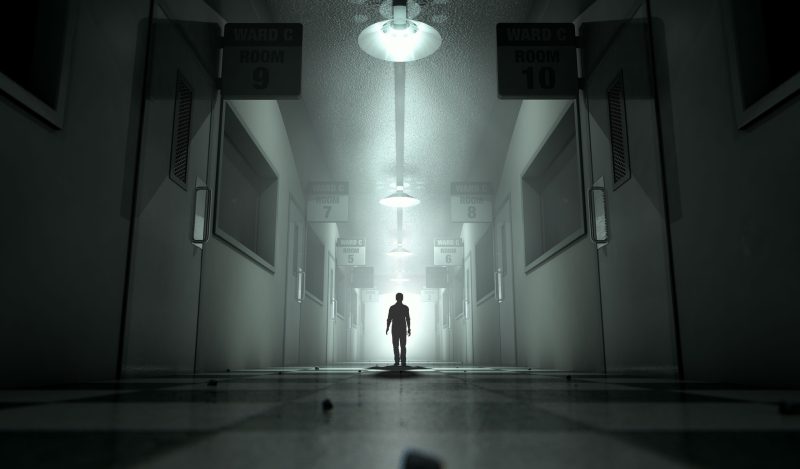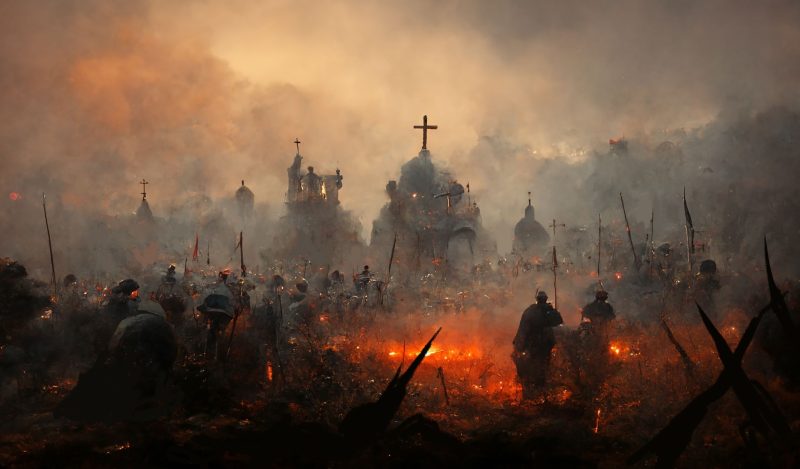Consumer inflation rate in the US has remained above 4% since April 2021, 5% since June 2021, and 8% since March 2022. This last month’s inflation report came in at 8.4%, above analysts’ forecasts, disappointing hopes that the inflation rate might start to subside.
A significant part of the current inflation is a rather obvious result of the massive covid relief and stimulus packages and the production and supply-chain disruptions caused by lockdowns and other covid restrictions
High inflation is forcing people to adjust their lifestyles and consumption patterns and accept a diminished standard of living. Consumers’ widespread and deep frustration has linked inflation with a stiff political cost. The public has good reasons to ask whether politicians should have pursued more prudent policy measures that would have avoided high inflation.
But politicians are not the only group facing questions about inflation. The economics profession is also under scrutiny. The one profession tasked with evaluating and informing the public about the pros and cons of different policies failed to raise the alarm about inflation.
Did economists not see inflation coming? Or, if inflation was not a surprise, why did economists not raise the alarm about the policies that led to it?
The answer to these questions is disheartening. Many in the economics profession did see that government policies of the last couple of years would result in high inflation. But most who saw it coming chose not to inform the public or raise the alarm until it was too late.
Jason Furman, former Chairman of President Obama’s council of economic advisors and current Harvard professor, commented recently that most academic economists have been ‘skeptical (mostly silently)’ of the stimulus packages. The high inflation we see today is partly the price of the economics profession’s self-censorship.
The economics profession’s determined silence on inflation is on display in regular surveys of top U.S. economists conducted by the Initiative on Global Markets of the University of Chicago School of Business. The initiative and surveys aim to help policymakers make informed decisions on ongoing policy debates.
None of the 35 surveys from January 2020 to May 2021 included questions about the potential inflationary impacts of covid restrictions and relief packages. Neither did the respondents bring up this concern in their free-form answers to the many survey questions about covid policy during this time.
The surveys only bring up inflation as a topic in June 2021, after the prospect of further lockdowns seemed remote. Congress had already approved the covid relief packages, and inflation had increased substantially.
The survey, published on June 6th, 2021, asked whether U.S. fiscal and monetary policy would lead to prolonged inflation. Of the economists surveyed, 26% agreed, while 21% disagreed. Clearly, a significant minority of economists did understand the likely inflationary consequences of covid restrictions and relief packages.
The survey series’ long silence on inflation rivals its silence on school closures. Consistent with economists’ lack of attention to the costs of covid restrictions, the survey series never once asks about the catastrophic human and economic cost of the school closures to America’s schoolchildren.
Precautionary Principle and Lockdown Love
The story goes back to March 2020, when economists, with very few exceptions, took an uncritical approach to covid lockdown policies.
In March 2020, governments in the United States and other Western countries imposed an unprecedented set of policies—lockdowns, stay-at-home orders, curfews, and school closures—in a largely futile effort to curb the spread of the then still novel coronavirus. These government actions quickly gathered the attention of scores of economists who set to work on trying to understand whether lockdowns were a good policy.
The survey series illustrates economists’ strong and immediate pro-lockdown bent. For example, the March 27th, 2020 survey asked if abandoning severe lockdowns would lead to more economic damage. Of the surveyed economists, 80% agreed, while none of the surveyed economists disagreed. Mere days after the first U.S. lockdowns, the economics profession’s leaders denied the presence of any scientific uncertainty about lockdowns as a policy.
What reasoning did the economics profession use to arrive at their lockdown love? The first set of economic analyses of lockdowns compared the cost of lockdowns (measured by business and personal income lost) against the presumed benefits of lockdowns (measured by the dollar value of the life years saved due to a presumed reduction in infections). The results indicated lockdowns to be costly but still well worth their economic cost.
These analyses used a standard economic approach—every action has both a cost and a benefit—yet were unlikely to convince the public to support lockdowns. Putting a dollar value to each year of life seems sensible to economists but is crass in the eyes of the general public.
The precautionary principle was a key element of these early lockdown analyses, which was reasonable in March 2020. There was still much scientific uncertainty about the properties of the virus, including its infectiousness and its true infection fatality rate, though the steep age gradient of the mortality risk from covid was already known. The steep age gradient implied that an alternate policy of focused protection might preserve life without the harms of draconian lockdowns.
However, economists’ application of the precautionary principle was tragically one-sided. Economic analysts assumed the worst about the virus and the best about the effectiveness of lockdowns and other restrictions in limiting disease spread. A consistent application of the precautionary principle would also have assumed the worst about the collateral harms of covid restrictions.
Self-Imposed Lockdown and Self-Fulfilling Panic
The second set of economic analyses of lockdowns arrived in April 2020 and were even more influential than the first set.
Economists based these analyses on a simple empirical observation: cell phone data showed that people voluntarily reduced their mobility before local authorities formally imposed lockdowns. Economists reasoned that most of the economic damage in Spring 2020 was not caused by lockdowns but rather by a voluntary behavioural change due to people’s fear of covid.
A broad and long-lasting consensus quickly formed among economists: formal lockdowns imposed no significant costs on the public. The most intrusive government policy in generations—lockdown—was suddenly seen as a free lunch.
Economists reasoned that the virus, not lockdown, caused economic harm. There was no tradeoff between viral spread and the economy, economists intoned. Lockdowns would stop the virus, and our lockdowns would not impose meaningful costs on society either at home or globally (in spite of the heavily connected global economy), economists reasoned.
The idea that people would have voluntarily locked anyway is spurious and ignores the grave distributional impacts of lockdowns. A lockdown imposes the same restrictions on everyone, whether or not they can bear the harm. Nevertheless, many economists favoured imposing formal lockdowns and shelter-in-place orders rather than offering public health advice.
Epidemiologists knew the staggeringly steep age gradient in the mortality risk from infection with covid from the pandemic’s start. This meant that vulnerable older people were wise to take precautionary measures. These formal orders meant that those for whom covid posed much less risk but who suffered great harm from lockdowns—such as children, teens, the poor, and the working class—could not avoid the worst of lockdown harms.
Economists justified lockdowns by the idea that people were appropriately panicked. However, a substantial part of the fear of covid was irrational, which led many people to overreact to covid. Surveys show that people vastly overestimated the mortality and hospitalization risks of covid and vastly underestimated the degree to which risks rise with age.
For example, one survey indicated that for under 40-year olds the average perceived mortality rate from a covid infection is up to one thousand times higher than the approximate actual mortality rate (10% versus 0.01%). Though the first surveys on excess fear of covid were published in April 2020, media outlets such as the New York Times waited until March 2021 before discussing excess covid fear, reflecting a widespread unwillingness to accept these facts.
Public fear of covid thus did not correspond to the objective facts of the disease. This undermines economists’ argument that people stayed home voluntarily as a rational response to the spread of covid in the Spring of 2020.
The economics profession has yet to explore what role lockdowns played in fomenting the excess fear of covid. Faced with a lack of public information about the risks posed by covid, people sought to infer the risks partly from observed policies—lockdowns were one such policy.
Because lockdowns were an unprecedented policy in Western countries, they gave the public a signal of an extraordinary danger. And because lockdowns imposed a uniform restriction on the population, it likely misled the population to believe that the risk from covid to young people was nearly as great as it was for the elderly. In reality, the mortality risk for the elderly was a thousand-fold higher than for the young. In some countries, the decision to panic the population and incite excess fear of covid was even explicit.
As 2020 wore on economists had little desire to re-examine the profession’s support for lockdowns. Among economists, the massive global economic damage and the failure of lockdowns to stop the spread of the virus were blamed on the lockdowns not having been strict enough.
For example, the survey published on October 6, 2020, asked if the economy would be stronger if stay-at-home orders had been longer and more uniform. Nearly half of the surveyed economists agreed (49%), while only 7% disagreed.
This covid consensus rendered the economics profession silent on all covid policies including lockdowns, school closure and stimulus packages until far too late.
Self-Censorship
Since the Spring of 2020, economists have had a strong incentive to censor themselves about the costs of covid measures for fear of being seen as out of step with the hastily achieved consensus that covid measures came without any significant costs to the public.
Economists dismissed any dissent from the lockdown consensus. On Twitter and elsewhere, those few who dared dissent were labelled cranks or grandma killers.
Even as late as September 2021, influential economists sought to silence debate on lockdowns. For example, Austan Goolsbee, University of Chicago professor and former chairman of President Obama’s council of economic advisors, stipulated that anyone daring to question economists’ lockdown orthodoxy should be ‘embarrassed’. Such edicts on debate from the profession’s leaders made it prohibitively costly for many to voice their own opinions on Covid policies such as lockdowns and school closures.
It is worth noting that Jason Furman, Harvard professor and former chairman of President Obama’s council of economic advisors, very recently decried the attacks on those who voiced dissenting opinions and suggested that such attacks may have silenced himself too on school closures. Such strong statements from influential economists may well spur further self-reflection within the profession and open up debate on Covid policies. But for a long time the economics profession has mostly left it for journalists and commentators to highlight even the most obvious flaws in the profession’s Covid consensus.
Today the profession’s self-censorship is costing the public in the form of persistently high inflation. There were some exceptions to this self-censorship among economists, but economists’ warnings about inflation were primarily offered in the most timid, highly couched possible way, uncharacteristic for economists.
For instance, Harvard professor Lawrence Summers, a former Clinton and Obama administration official, is often credited as a rare economist who warned the public, yet even those warnings arrived late and are surprisingly tepid and ambiguous.
Robust open public debate among economists on the costs of covid restrictions and government relief packages would not have prevented all of the inflation. However, had economists armed politicians and the public with a more comprehensive understanding of the consequences of covid restrictions and relief packages, governments would likely have pursued more moderate policies that would have led to less inflation.
The lack of warnings on inflation from economists has a further cost. Economists’ self-interested silence erodes the public’s trust in the profession. This decrease in trust will make it more difficult for economists to contribute to public policy in the coming years.
If there is a silver lining it is in the stark reminder that the public has received about the costs of censorship and self-censorship. Whether it is scientists censoring themselves or the digital giants censoring and deplatforming dissenting scientists, censorship always weakens the quality of the debate. But these limits on open and robust debate will also have very tangible costs. Regrettably, this is well demonstrated by today’s high inflation.
The public paid a heavy price for economists’ analytical errors. For example, the U.S. could have avoided the disastrously long school closures had the economists vocally applied the precautionary principle consistently in the Spring of 2020. Had they done so, economists would have raised the alarm about the catastrophic cost of school closures instead.
Reckoning and Reform
The inflation illustrates vividly why economists’ covid consensus was deeply misguided. Inflation has made it obvious that lockdowns and other covid restrictions—and the efforts to soften their impact with massive relief and stimulus packages—were never a free lunch, contrary to economists’ fervent but ill-advised public consensus. Inflation has made it hard for economists to hide their errors.
This error likely could have been avoided with more open debate. Some organizations, such as the United Nations’ World Food Program, did try to notify the public early about the costs of lockdowns. Their analysis warned that the disruption in global trade and contraction of the world economy caused by rich countries’ lockdowns in Spring 2020 would push 130 million people in poor countries to starvation.
However, seemingly overnight, the one profession tasked with quantifying all the tradeoffs in life had firmly decided—and with scant evidence—covid restrictions imposed no essential tradeoffs. An April 2020 report on the world economy by the International Monetary Fund termed the period the Great Lockdown, yet lockdowns purportedly did not harm the economy.
The lockdowns of Spring 2020 were likely responsible for much more of the economic decline than the consensus among economists still admits. Though economists’ reasoning justifying the covid consensus was flawed from the start, the profession has been unwilling to examine the implications of the excess fear of covid and the decision to stoke fear in the public.
Ultimately, whether economists can gain back the public’s trust depends on their honesty in admitting the profession’s failure. The profession needs reform so that dissent from orthodoxy is encouraged and self-censorship seen as a failure to live up to economists’ basic professional obligations.
Published under a Creative Commons Attribution 4.0 International License
For reprints, please set the canonical link back to the original Brownstone Institute Article and Author.










